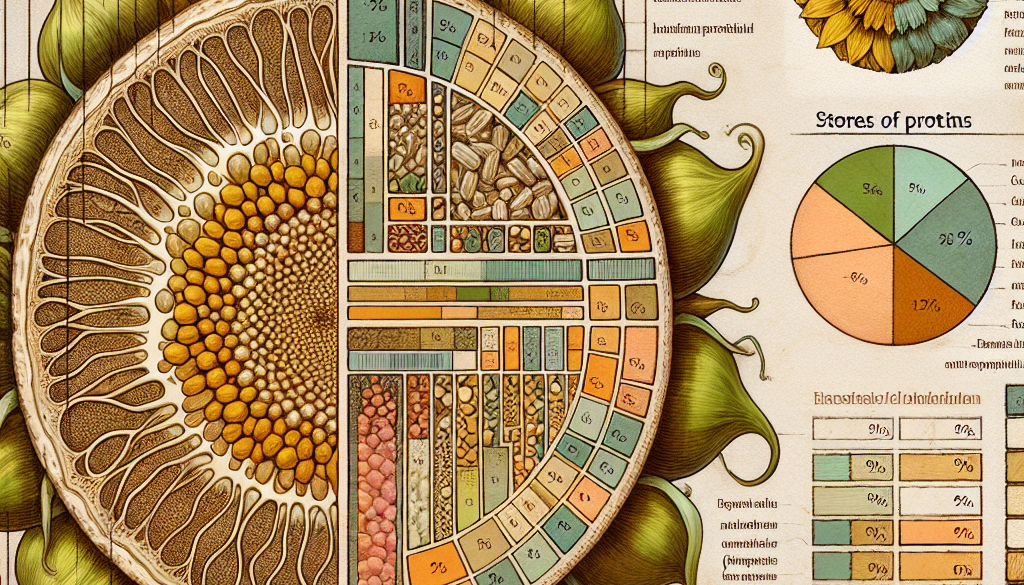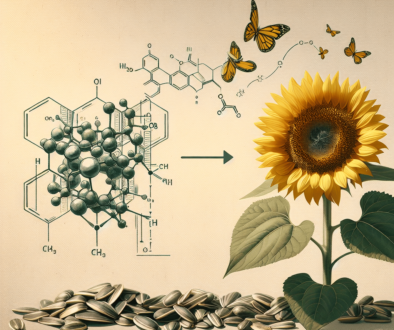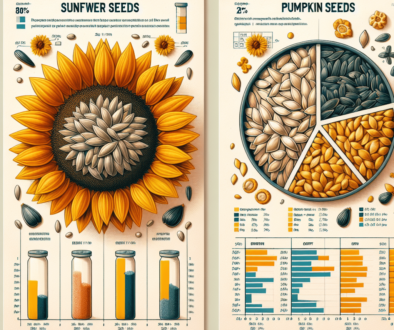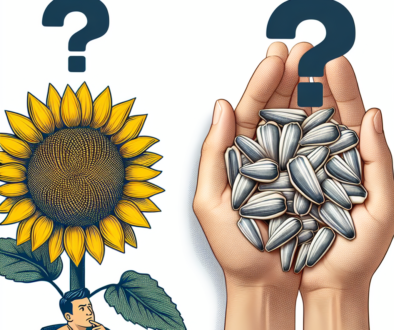Sunflower Sprouts: Protein Content Analysis
-
Table of Contents
- Sunflower Sprouts: A Comprehensive Protein Content Analysis
- Understanding the Nutritional Value of Sunflower Sprouts
- Protein Content in Sunflower Sprouts
- Vitamins and Minerals in Sunflower Sprouts
- Phytonutrients and Antioxidants
- Benefits of Including Sunflower Sprouts in Your Diet
- Comparing Sunflower Sprouts to Other Protein Sources
- How to Incorporate Sunflower Sprouts into Your Diet
- Case Studies and Research on Sunflower Sprouts
- Challenges and Considerations
- Conclusion: The Protein Power of Sunflower Sprouts
- Discover ETprotein’s High-Quality Protein Products
Sunflower Sprouts: A Comprehensive Protein Content Analysis

Sunflower sprouts, the young shoots of the sunflower plant, have gained popularity as a nutritious and versatile food source. These sprouts are not only packed with essential vitamins and minerals but also contain a significant amount of protein, making them an excellent addition to a healthy diet. In this article, we will delve into the protein content of sunflower sprouts, examining their nutritional profile, benefits, and how they compare to other plant-based protein sources.
Understanding the Nutritional Value of Sunflower Sprouts
Sunflower sprouts are the germinated seeds of the sunflower plant. They are harvested before the plant grows into a mature sunflower, typically within 7 to 10 days after germination. At this stage, the sprouts are rich in nutrients and have a tender, crunchy texture.
Protein Content in Sunflower Sprouts
Protein is a crucial macronutrient necessary for building and repairing tissues, producing enzymes and hormones, and supporting overall health. Sunflower sprouts are a noteworthy source of plant-based protein. The protein content in sunflower sprouts can vary depending on the growing conditions and the stage of harvest. On average, sunflower sprouts contain approximately 2.5 to 4.5 grams of protein per 100 grams of fresh weight.
Vitamins and Minerals in Sunflower Sprouts
Beyond protein, sunflower sprouts are also rich in vitamins and minerals. They are an excellent source of vitamin E, a powerful antioxidant that protects cells from oxidative damage. Additionally, they contain B vitamins, including folate, which is essential for DNA synthesis and repair. Sunflower sprouts are also a good source of essential minerals such as magnesium, potassium, and iron.
Phytonutrients and Antioxidants
These sprouts are abundant in phytonutrients and antioxidants, which play a role in reducing inflammation and preventing chronic diseases. Chlorophyll, the pigment that gives plants their green color, is present in high amounts in sunflower sprouts and has been linked to various health benefits.
Benefits of Including Sunflower Sprouts in Your Diet
Incorporating sunflower sprouts into your diet can offer numerous health benefits. Here are some of the key advantages:
- Improved Digestion: Sunflower sprouts contain dietary fiber, which promotes healthy digestion and prevents constipation.
- Weight Management: The high fiber and protein content can help you feel full longer, aiding in weight management.
- Heart Health: The sprouts’ rich vitamin E content can help lower cholesterol levels and reduce the risk of heart disease.
- Immune Support: The nutrients found in sunflower sprouts support the immune system and help the body fight off infections.
Comparing Sunflower Sprouts to Other Protein Sources
When it comes to plant-based proteins, sunflower sprouts are an excellent option. Let’s compare their protein content to other popular sources:
- Legumes: Beans, lentils, and chickpeas are known for their high protein content, ranging from 6 to 9 grams per 100 grams. While they have more protein than sunflower sprouts, they also require cooking, whereas sprouts can be eaten raw.
- Nuts and Seeds: Nuts and seeds are protein powerhouses, with almonds containing about 21 grams of protein per 100 grams. However, they are also higher in calories and fat.
- Grains: Quinoa and oats are grains that offer a good amount of protein, with quinoa providing around 4 grams per 100 grams cooked. Sunflower sprouts offer a similar protein content without the need for cooking.
How to Incorporate Sunflower Sprouts into Your Diet
There are many creative ways to include sunflower sprouts in your meals:
- Add them to salads for a crunchy texture.
- Use them as a topping on sandwiches or wraps.
- Blend them into smoothies for a nutrient boost.
- Include them in omelets or scrambled eggs for added flavor.
Case Studies and Research on Sunflower Sprouts
Several studies have highlighted the nutritional benefits of sunflower sprouts. For instance, research published in the “Journal of Agricultural and Food Chemistry” found that sunflower sprouts contain high levels of phytosterols, which are beneficial for cholesterol management. Another study in the “International Journal of Food Sciences and Nutrition” reported that sprouted seeds, including sunflower, have increased levels of bioactive compounds compared to their non-sprouted counterparts.
Challenges and Considerations
While sunflower sprouts are nutritious, there are some considerations to keep in mind:
- They should be consumed fresh and properly washed to avoid the risk of bacterial contamination.
- Individuals with a history of foodborne illness should be cautious when consuming raw sprouts.
- It’s important to source sprouts from reputable suppliers to ensure quality and safety.
Conclusion: The Protein Power of Sunflower Sprouts
Sunflower sprouts are a valuable addition to a balanced diet, offering a substantial amount of plant-based protein along with a host of other nutrients. They are versatile, easy to incorporate into various dishes, and provide health benefits that support overall well-being. Whether you’re looking to enhance your protein intake or simply add more greens to your meals, sunflower sprouts are an excellent choice.
Discover ETprotein’s High-Quality Protein Products
If you’re interested in exploring more plant-based protein options, ETprotein offers a range of products that cater to various dietary needs. Their selection includes organic rice protein, clear rice protein, pea protein, clear pea protein, pumpkin seed protein, sunflower seed protein, and mung bean protein. These products are characterized by their neutral taste, non-GMO, and allergen-free attributes, making them suitable for a wide array of applications in the food and beverage industry.
About ETprotein:
ETprotein, a reputable protein Chinese factory manufacturer and supplier, is renowned for producing, stocking, exporting, and delivering the highest quality organic bulk vegan protein and plant proteins. They include Organic rice protein, clear rice protein, pea protein, clear pea protein, pumpkin seed protein, sunflower seed protein, mung bean protein, etc. Their offerings, characterized by a neutral taste, non-GMO, allergen-free attributes, cater to a diverse range of industries. They serve nutraceutical, pharmaceutical, cosmeceutical, veterinary, as well as food and beverage finished product distributors, traders, and manufacturers across Europe, USA, Canada, Australia, Thailand, Japan, Korea, Brazil, and Chile, among others.
ETprotein specialization includes exporting and delivering tailor-made protein powder and finished nutritional supplements. Their extensive product range covers sectors like Food and Beverage, Sports Nutrition, Weight Management, Dietary Supplements, Health and Wellness Products, and Infant Formula, ensuring comprehensive solutions to meet all your protein needs.
As a trusted company by leading global food and beverage brands and Fortune 500 companies, ETprotein reinforces China’s reputation in the global arena. For more information or to sample their products, please contact them and email sales(at)ETprotein.com today.














